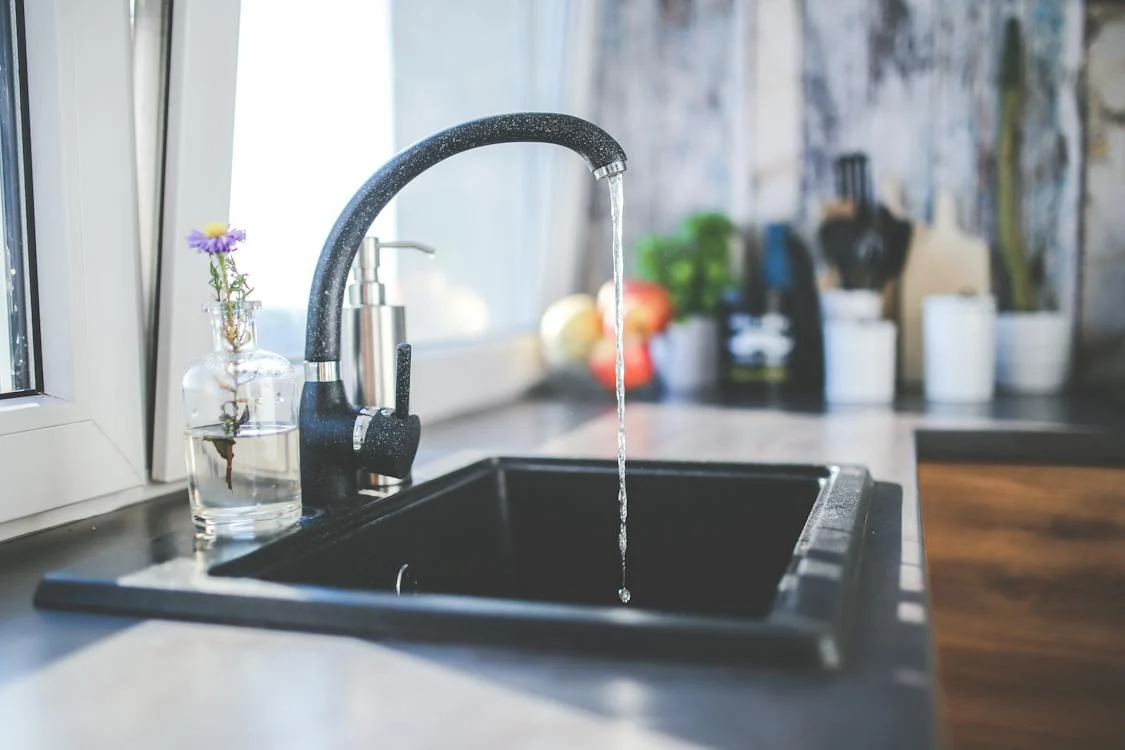For the sake of convenience, one of the simplest yet most impactful choices we can make is opting for tap water over bottled water. Not only is tap water more affordable and readily accessible, but it also significantly reduces plastic waste and conserves resources.
However, there are several important considerations to keep in mind before consuming tap water. Keeping the following points in mind will help ensure that you’re consuming tap water safely and responsibly.
#1 Understanding Tap Water Quality
According to the EPA, the US has one of the safest public water supplies in the world. The country has around 150,000 public water systems that provide its citizens with drinking water. However, in recent times, this safety has been questioned, and the country’s water supply has been heavily scrutinized.
The USGS reports that almost 50 percent of America’s tap water contains PFAS chemicals, which are known to cause cancer. In fact, these same chemicals lead to a severe case of water contamination in Camp Lejeune, NC, between 1953 and 1987. That, in turn, led to the Camp Lejeune water contamination lawsuit, something we’ll discuss in detail in a later section. Thus, before consuming or using tap water, it’s essential to understand its quality.
In most developed countries, tap water undergoes rigorous testing and treatment processes to meet safety standards set by regulatory agencies. These processes typically include filtration, disinfection, and monitoring for contaminants.
However, water quality can vary depending on geographical location, infrastructure, and other factors. Familiarize yourself with local water quality reports provided by municipal authorities to gain insights into the safety and composition of your tap water.
#2 Avoiding Toxic Water
As discussed earlier, tap water can often be toxic. The Camp Lejeune incident is a grave reminder of just how bad the situation can get.
According to TorHoerman Law, water contamination in the Camp Lejeune area led to severe health problems among locals. Many even developed cancer over the years because of exposure to the contaminated water. Thus, the Camp Lejeune victims filed the Camp Lejeune lawsuits to seek compensation for their losses.
The Camp Lejeune settlement amounts are likely to be between $10,000 and over $1,000,000 per claim. Based on the claim amounts in discussion, it’s evident just how devastating the situation was in Camp Lejeune during the water contamination incident.
As the Camp Lejeune lawyers work tirelessly to ensure justice for the victims, people need to understand how toxic water can destroy their health. Thus comes the need for the general public to avoid consuming and using toxic tap water.
Local governments need to test the water supply regularly to ensure that it’s safe for usage. Also, people who live in an area with a history of toxic water supply or water pollution must purify their water before consumption.
#3 Promoting Hydration
Staying hydrated is essential for overall health and well-being, and tap water is an excellent, cost-effective way to meet daily hydration needs. Unlike sugary beverages or artificially flavored drinks, tap water is calorie-free and does not contain added sugars or artificial additives.
Moreover, it hydrates the body efficiently, replenishing fluids lost through sweat, respiration, and other bodily functions. By making tap water readily available and accessible throughout the day, individuals can establish and maintain healthy hydration habits.
#4 Supporting Public Infrastructure
Choosing tap water over bottled water not only benefits individual health and the environment but also supports investments in public water infrastructure. Municipal water systems require continuous maintenance, upgrades, and investments to ensure reliable access to clean and safe drinking water for communities.
Through proper utilization of tap water and contributing to water utility revenues through water bills, individuals indirectly support these essential infrastructure projects. This fosters long-term sustainability and resilience in water supply systems.
#5 Conscious Consumption
While tap water is a valuable resource, it’s crucial to use it wisely and avoid unnecessary waste. Habits like turning off the faucet while brushing teeth, fixing leaks promptly, and using water-efficient appliances can help conserve water and reduce utility bills.
Additionally, being mindful of water usage in daily activities such as cooking, cleaning, and gardening can contribute to water conservation efforts. This will allow you to promote responsible stewardship of this vital resource.
#6 Investing in Filtration
While tap water meets safety standards, some individuals may prefer an extra layer of filtration to address specific concerns or improve taste. Water filtration systems come in various forms, including pitcher filters, faucet-mounted filters, and under-the-sink systems. These filters can effectively remove impurities such as chlorine, sediment, lead, and other contaminants, providing cleaner and better-tasting water.
It’s important to choose a filtration system that suits your needs and regularly maintain it according to the manufacturer’s instructions to ensure optimal performance. According to Fortune Business Insights, as of 2022, the global water purifier market is worth $30.62 billion. Given that it’s such a big industry, people can easily find filtration or purification systems that meet their requirements.
In conclusion, using and drinking tap water offers numerous benefits for individuals, communities, and the planet. By keeping the above-discussed points in mind, individuals can harness the potential of tap water to improve health and protect the environment.
Ultimately, embracing tap water as a sustainable and accessible resource is not just a choice. It’s a conscious commitment to a healthier, more equitable, and environmentally responsible future.



